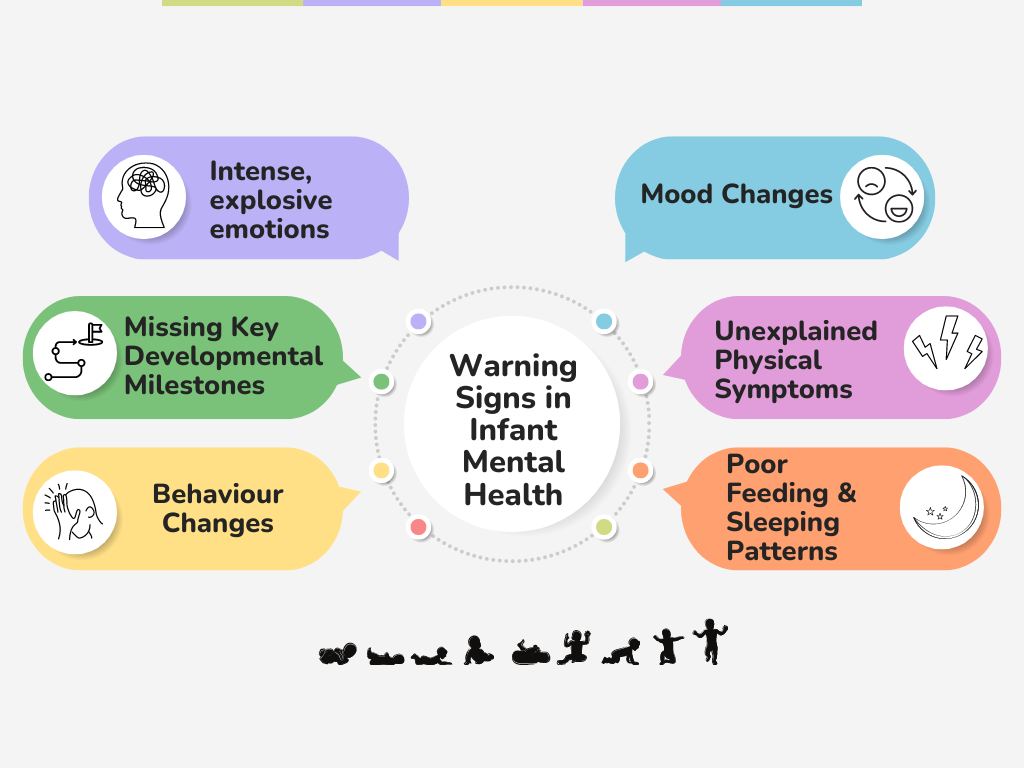Identifying Warning Signs of Mental Health Conditions in Children
All babies and young children will have times where they struggle to manage their emotions and present with challenging behaviours. In many situations where there are concerns about a child’s social, emotional, behaviour and mental health these are transient, and early years settings work in partnership with parents and carers to support the child’s mental health and wellbeing. Where there are ongoing concerns despite sensitive and consistent support settings, parents or carers may want to seek further support or guidance.
It can be difficult to identify if there is an issue that needs specialist intervention when it comes to mental health and wellbeing in young children. Normal childhood development is an ongoing process that involves continuous and constant change. It is age appropriate for young children to struggle with emotional dysregulation and it can be challenging to assess what might be considered a problem which needs further intervention or support. Mental health disorders also present differently in each individual child and children may not be able to verbalise how they are feeling or tell an adult why they are thinking, responding or reacting in a specific way.
Some warning signs that you might want to be aware of and curious about are:

Image credit: Lorna Colter
This is by no means an exhaustive list but outlines key factors that could indicate concerns. These are issues that are persistent across different contexts and have a significant impact on a child being able to play, interact and learn.
Remember – it isn’t your job to assess and diagnose children when it comes to mental health. However, if you notice a change in behaviour or are aware of some of these warning signs in children that you work with or support, it is important that this is discussed with your team and parents/carers are signposted to further support.
The following services all offer a range of prevention, promotion, early intervention and therapeutic mental health support:
- maternity
- health visiting
- mental health
- family support
- early education
All children have mental health which we need to pay attention to and take care of but for some this will develop into a mental health problem or illness. These can present as serious challenges in the way children typically learn, behave, or handle their emotions. Mental health problems may impact hugely on a child’s ability to function day to day and cause significant distress. Among the most common mental health problems that can be diagnosed are anxiety and behaviour disorders.
A crisis for children is rarely due to a mental health problem alone but also the context in which they find themselves. Issues such as family breakdown; the impact of past or current trauma and abuse, financial stress or conflict are likely to present as well.
Significant and persistent issues need those involved in a child’s care to investigate further to understand what might be going on in the wider context of the child’s life. Professionals should be curious about a child’s development, relationships and experiences but not stigmatise children who are not conforming to normal expectations.
“Professionals should be aware that a baby or young child’s emotional or behavioural problems may be the result of neglect or maltreatment at home, in which case, alongside supporting the child, professionals should follow safeguarding procedures. For more information on safeguarding, please refer to NSPCC guidance.”
UNICEF

Stop and Reflect:
When a child needs extra support, it needs to be considered whether other agencies have a part to play. Vulnerable families often need a multi-agency approach to improve outcomes for everyone in the family.
- Why might achieving a joined up, effective and collaborative approach to supporting infant mental health and wellbeing be a challenge? How could this be improved?






